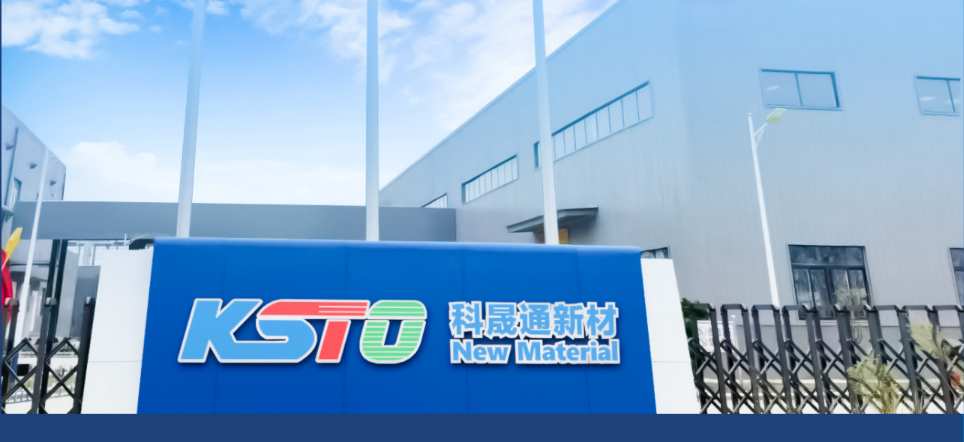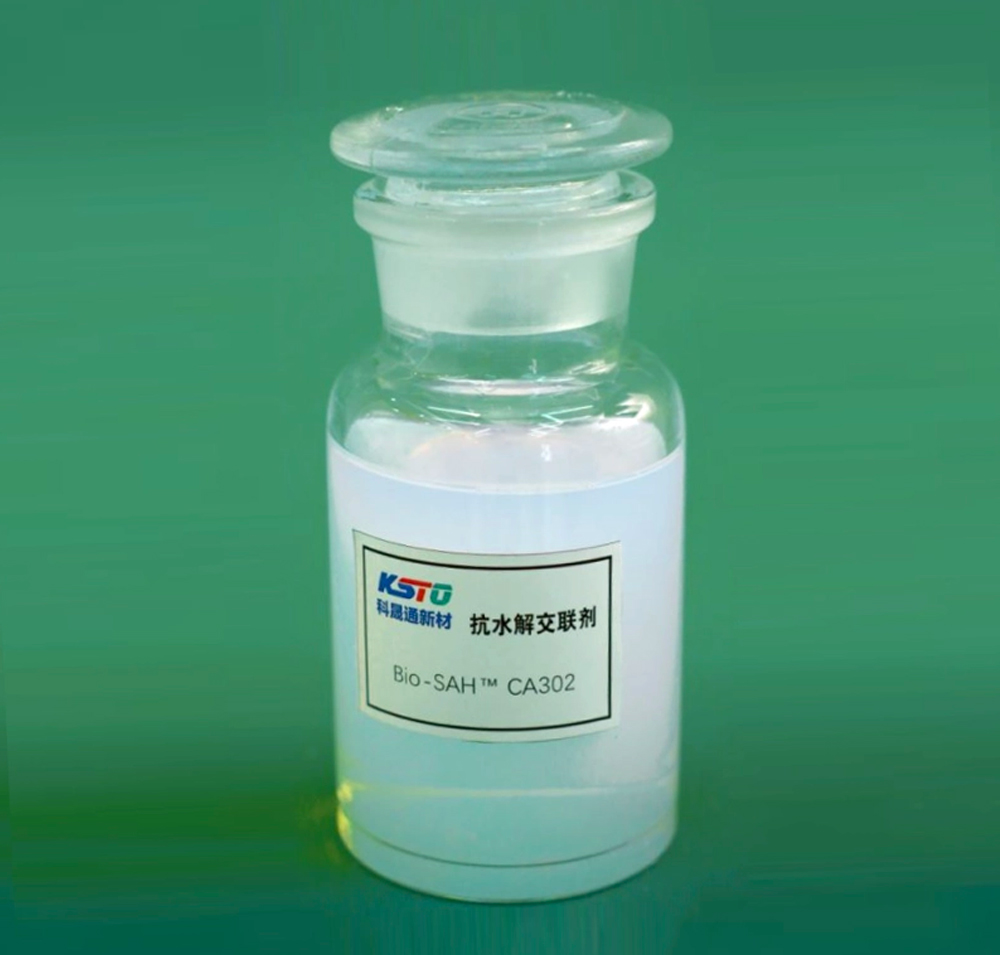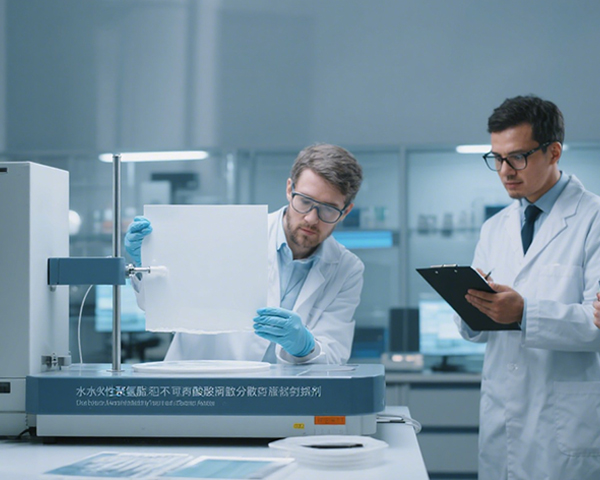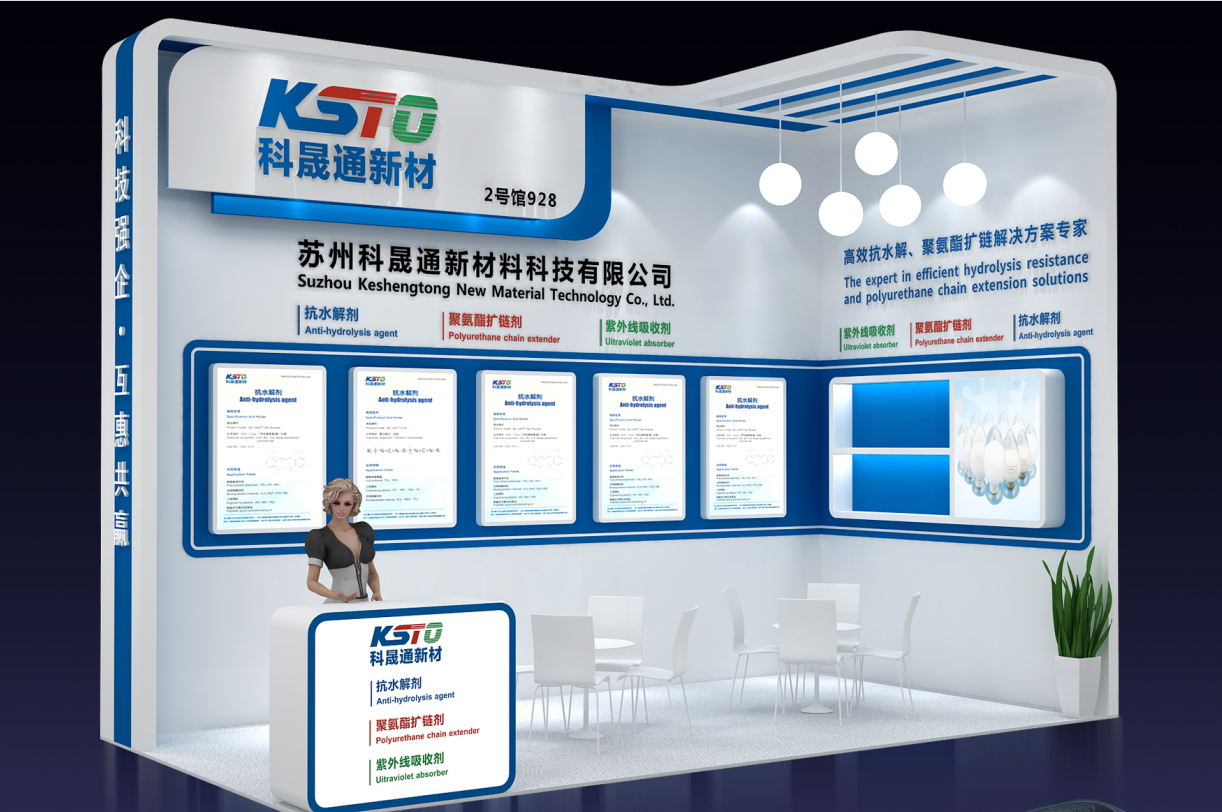
Anti-hydrolysis Crosslinking Agent for Extreme Durability
Water-Based Crosslinkers
KSTO’s Bio-SAH™ CA302 is a high-performance, water-based polymeric carbodiimide crosslinking agent. It's specifically formulated to enhance the water, chemical, abrasion, and scratch resistance of acrylic and polyurethane dispersions. This agent also boosts adhesion to challenging substrates like metal and film, making it suitable for industrial coatings, adhesives.
Key features of Bio-SAH™ CA302 include:
- Non-toxic and VOC-free, offering an eco-friendly alternative to aziridine.
- Enhances adhesion and durability in various applications.
- Improves resistance to water, chemicals, and abrasion.
Ideal for use in water-based coatings, paints, and inks, Bio-SAH™ CA302 is a reliable choice for improving product performance and sustainability.

Practical Application

Water-Based Coatings
Enhances resistance to water, abrasion, and chemicals in coatings for metal, plastic films, and wood. Delivers long-lasting protection.

PU and Acrylic Emulsions
Improves film integrity, durability, and adhesion in waterborne polyurethane and acrylic resin dispersions, replacing hazardous crosslinkers.

Shoe Adhesives and Leather Finishes
Boosts bonding strength and hydrolysis resistance for shoes and leather coatings, ensuring longevity under wear and moisture.
Why It Works
Bio-SAH™ CA302 ensures superior crosslinking, water resistance, and environmental safety in water-based systems without toxic by-products.

High Reactivity and Film Performance
CA302 reacts efficiently with residual carboxyl groups in polyurethane or acrylic systems, enhancing hydrolysis and chemical resistance. It forms durable crosslinked networks, improving mechanical properties such as scratch resistance and abrasion durability without affecting clarity or flexibility of the film.

Eco-Friendly and Safe Alternative
Unlike traditional crosslinkers such as aziridines, CA302 is non-toxic, VOC-free, and suitable for green manufacturing. It meets modern safety and regulatory requirements without compromising performance, making it ideal for eco-conscious industrial applications.

Excellent Substrate Adhesion
CA302 not only improves the hydrolysis and chemical resistance of water-based resins, but also enhances adhesion to substrates commonly used in industrial applications—such as metal surfaces, wood, leather, and coated films. This results in stronger bonding performance and extended durability in demanding environments such as woodworking finishes, shoe adhesives, and metal coatings.
Latest Industry Updates
-
 Empowering Material Upgrades, Building Industrial Resilience - Suzhou Keshengtong New Materials Technology Co., Ltd. Invites You to the 21st China International Polyurethane ExhibitionThe performance breakthrough of polyurethane materials is inseparable from the technological innovation of core addi
Empowering Material Upgrades, Building Industrial Resilience - Suzhou Keshengtong New Materials Technology Co., Ltd. Invites You to the 21st China International Polyurethane ExhibitionThe performance breakthrough of polyurethane materials is inseparable from the technological innovation of core addi
Get Quick Answers
Q1: What is CA302 used for?
A1: It's a water-based anti-hydrolysis crosslinker for PU, acrylics, and coatings needing high durability.
Q2: How does CA302 improve water resistance?
A2: It forms a tight, reactive network with resins, preventing hydrolysis and moisture penetration.
Q3: Is CA302 compatible with water-based systems?
A3: Yes, it's fully miscible with PU dispersions, acrylic emulsions, and waterborne formulations.
Q4: Can CA302 replace aziridine?
A4: Yes. It provides similar crosslinking strength without toxicity or VOC concerns.
Q5: What’s the recommended dosage of CA302?
A5: Generally 1–5% of total resin solids depending on system and performance requirements.
Q6: Does CA302 affect transparency or flexibility?
A6: No. It enhances durability without compromising optical or physical properties of the coating.
Q7: Can it be used in textile applications?
A7: Yes, it provides hydrolysis resistance and durability in functional textiles and fabric coatings.
Let’s Enhance Together
Looking for safe and durable crosslinkers? Let’s talk today.
Mob:+86-512-66706407
E-mail:service@kstoantihydro.com




